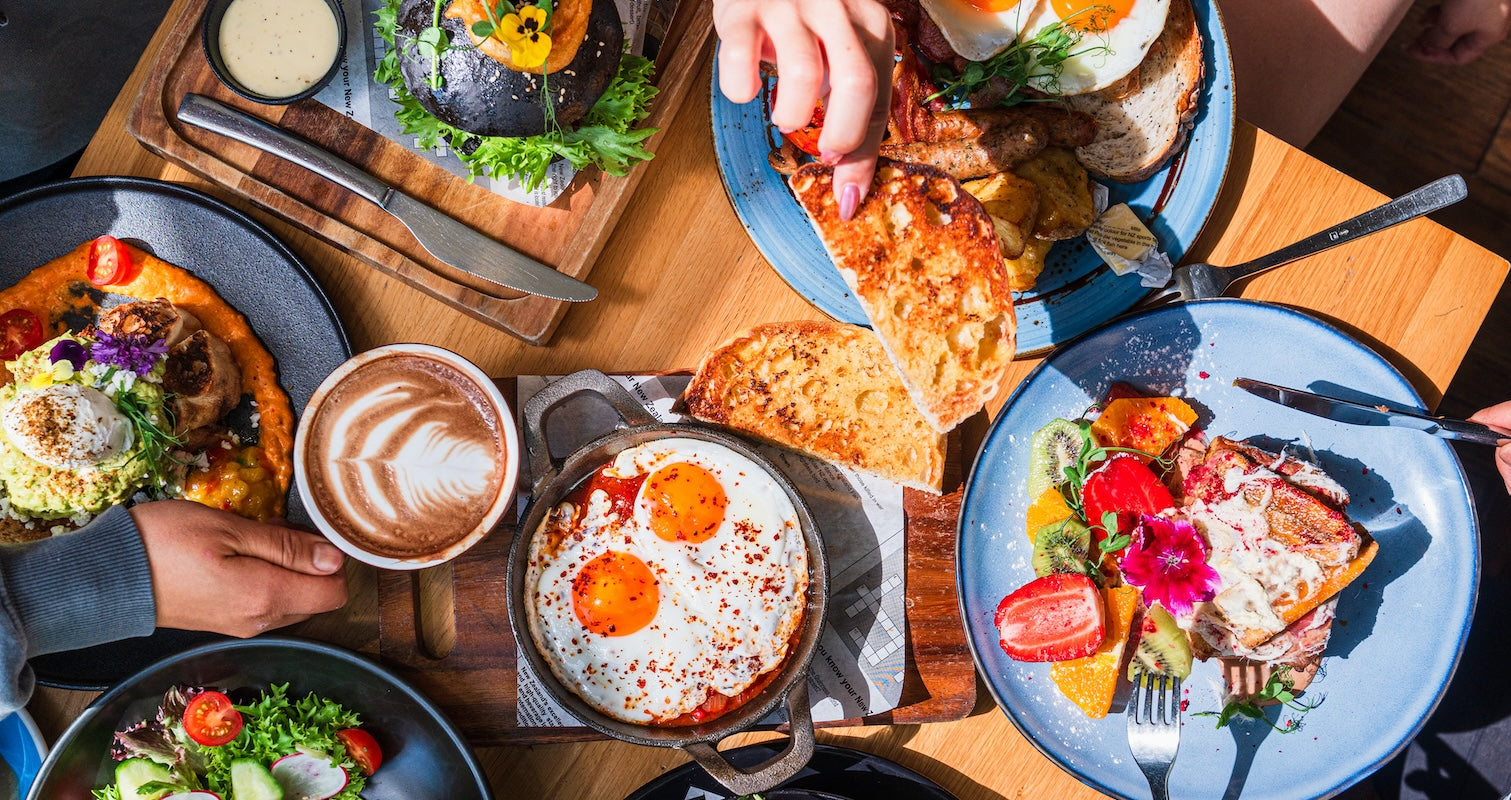Modern wheat contains gliadin, a gluten protein that’s hard to digest. In some people, it triggers the release of zonulin, which loosens gut junctions—contributing to leaky gut, inflammation, and sensitivities.

Is Your Gut Leaking? What Damages Your Gut Lining—and How to Heal It
Your Gut Lining Is the Gatekeeper of Your Health
Gut health isn’t just about what you eat—it’s about how well your body breaks it down, absorbs it, and keeps harmful substances out.
In Part 1 of our Gut Health Series, we explored the full digestive journey, starting with the brain’s first signal and ending with nutrient absorption in the small intestine. In Part 2, we zoomed in on two key players that make digestion possible: stomach acid and enzymes.
Today, we’re going even deeper—into the layer that protects your body at the cellular level:
🔐 Your gut lining.
What the Gut Lining Does
Your gut lining is a powerful gatekeeper. It's made up of a single layer of tightly packed cells that separate your digestive tract from the rest of your body.
Think of it as an intelligent filter—letting in essential nutrients while keeping out toxins, microbes, and undigested food particles.
The structure is made up of tight junctions—which are like tiny zip ties that hold the cells together, ensuring only what’s meant to get through does.
Its job is simple (but powerful):
✅ Let nutrients and beneficial compounds in
🚫 Keep harmful invaders and waste out
When everything’s working well, this system keeps you nourished, energized, and protected.
When Your Gut Lining is Disrupted
Sometimes, this barrier gets overwhelmed. When the tight junctions loosen or the cells become damaged, the gut lining becomes too permeable—a condition called leaky gut (technically known as increased intestinal permeability).
This means substances that should stay inside your digestive tract—like toxins, pathogens, and partially digested food proteins—start slipping through into your bloodstream, where they don’t belong.
When that happens, your immune system kicks into high alert, creating inflammation and triggering symptoms that can show up throughout the body.

Sometimes, this barrier gets overwhelmed. When the tight junctions loosen or the cells become damaged, the gut lining becomes too permeable—a condition called leaky gut (technically known as increased intestinal permeability).
This means substances that should stay inside your digestive tract—like toxins, pathogens, and partially digested food proteins—start slipping through into your bloodstream, where they don’t belong.
When that happens, your immune system kicks into high alert, creating inflammation and triggering symptoms that can show up throughout the body.

Signs of Leaky Gut:
Fatigue and brain fog
Bloating, food sensitivities, or unpredictable digestion
Skin flare-ups (like acne, eczema, or rashes)
Joint pain and low immunity
Feeling inflamed, puffy, or reactive
Signs of Leaky Gut:
- Fatigue and brain fog
- Bloating, food sensitivities, or unpredictable digestion
- Skin flare-ups (like acne, eczema, or rashes)
- Joint pain and low immunity
- Feeling inflamed, puffy, or reactive
Inflammation: The Root of Gut Disruption
There are a variety of factors that contribute to a weakened gut lining—but first, let's talk about what ties them all together: inflammation.
When your gut lining is constantly bombarded—by processed foods, infections, stress, or environmental toxins—it can’t repair itself properly. Instead, it stays stuck in a state of chronic low-grade inflammation.
This inflamed environment wears down your gut barrier, loosens tight junctions, and makes it easier for harmful particles to sneak through—and harder for your immune system to stay calm.
If left unchecked, chronic gut inflammation can snowball into bigger problems—like allergies, low mood, autoimmune flares, or metabolic issues.

What Damages the Gut Lining?
Stress
Processed foods
Alcohol
Antibiotics and NSAIDs
Dysbiosis
Gluten
Environmental toxins
Lack of exercise
Poor sleep quality
What Damages the Gut Lining?
Stress
Processed foods
Alcohol
Antibiotics and NSAIDs
Dysbiosis
Gluten
Environmental toxins
Lack of exercise
Poor sleep quality
The Role of Zonulin in Leaky Gut
So how exactly does your gut lining become “leaky”? One of the main players is zonulin—a protein your gut cells naturally produce to regulate the tight junctions between them. Think of it as your gut’s dimmer switch: when zonulin is released, the junctions open slightly to let things through.
But here’s the catch: inflammation triggers excess zonulin. And when zonulin levels rise too high, the junctions stay open longer than they should—turning your intelligent filter into a leaky faucet.
Zonulin levels can spike from:
- Gluten (specifically gliadin—even in non-celiacs)
- Gut infections or pathogens like Candida and parasites
- Dysbiosis (imbalanced microbiome)
- Environmental toxins like pesticides or mold
- Chronic inflammation from diet, stress, or medication
Takeaway: Inflammation isn’t just damaging your gut lining—it’s flipping the zonulin switch and prying open the door.
How to Support and Strengthen Your Gut Lining
Your gut lining is resilient—but modern life throws a lot at it.
The good news? Small, daily shifts can help calm inflammation, strengthen your gut barrier, and support a healthy immune response (including boosting secretory IgA). Here’s how.
1. Nourish It
Food isn’t just fuel—it’s repair material for your gut. Prioritize nutrient-dense, anti-inflammatory foods that help your gut lining heal and function at its best.
- Nutrients from whole foods: Whole, colorful plants are packed with key nutrients like zinc, vitamin A, magnesium, and L-glutamine—plus polyphenols and phytonutrients that act as antioxidants and anti-inflammatories to soothe, protect, and strengthen the gut lining.
- Fiber from whole foods: Apples, berries, sweet potato, and onions provide ‘native’ fiber that feeds gut bacteria, supports regularity, and produces short-chain fatty acids—key for gut lining repair and reduced inflammation.
- Fermented foods: Kimchi, sauerkraut, kefir, yogurt, and fermented veggies deliver beneficial bacteria that help restore balance and support immune resilience.
- Bone broth: Especially from beef bones—contains collagen and gelatin to help seal and rebuild the gut lining.

- Clean protein: Grass-fed beef, wild-caught fish, pasture-raised poultry, and lamb provide amino acids your gut cells need to regenerate.
- Healthy fats: Avocados, extra virgin olive oil, grass-fed butter, eggs, coconut, nuts, and oily fish offer anti-inflammatory support and improve nutrient absorption.
- Soothing herbs: Ginger, turmeric, fennel, aloe vera, dandelion, slippery elm, and peppermint form a protective coating on the intestinal lining to calm inflammation.
- Digestive enzymes: Supplemental enzymes can break down hard-to-digest food particles that may otherwise trigger inflammation or gut irritation.
2. Protect It
Your gut lining is sensitive—and many everyday exposures can quietly wear it down. Protecting it isn’t about being perfect, but about reducing the most common sources of strain:
❌ Cut back on alcohol, ultra-processed food, and unnecessary meds
- Alcohol irritates the gut lining, weakens the protective mucus barrier, and increases intestinal permeability—contributing to leaky gut and also disrupting the microbiome.
- Ultra-processed foods (seed oils, refined sugar, artificial colors/flavors/sweeteners) can damage tight junctions, fuel inflammation, and feed the wrong bacteria—undermining gut resilience.
- Common medications (like NSAIDs, antacids, PPIs, antibiotics) interfere with gut lining repair. NSAIDs in particular thin the mucus layer and damage the gut lining, while antacids reduce stomach acid—slowing digestion and altering microbial balance.
✅ Choose clean, organic foods when possible
Pesticide residues like glyphosate can disrupt your gut microbiome and trigger zonulin release. Over time, this weakens your gut barrier and allows unwanted particles to slip past it into your blood. Choosing organic foods where possible helps lower that toxic load and protect gut integrity.
❌ Reduce toxin exposure from food, water, and personal care products
Your gut lining is constantly exposed to compounds beyond just food—many of which create a silent strain. These include:
- Heavy metals
- Microplastics
- Endocrine-disrupting chemicals (like BPA, phthalates)
- PFAS ("forever chemicals") found in food packaging, cookware, and cosmetics
These substances disrupt your microbiome, impair immune regulation in the gut, and drive chronic, low-grade inflammation that weakens the gut lining over time.
3. Regulate It
Lifestyle matters just as much as what’s on your plate. Gut repair depends on daily rhythms that reduce stress, enhance immune resilience, and support digestion.
- Manage stress through breathwork, movement, and mindfulness—stress directly weakens the gut lining.
- Prioritize high-quality sleep—your gut barrier heals and regenerates overnight.
- Eat slowly and mindfully to activate your parasympathetic “rest and digest” system for better enzyme release, blood flow, and digestion.
What Happens Next?
Once your gut lining filters what gets in, the next key player takes over: your microbiome .
This community of trillions of bacteria, fungi, and other microbes doesn’t just help finish digestion—it produces essential nutrients, maintains gut balance, and even talks to your immune system.
When your gut lining is strong and selective, it creates the ideal environment for a thriving, balanced microbiome. But when the barrier is compromised, your internal ecosystem can shift—leading to imbalances that ripple throughout the body.

Once your gut lining filters what gets in, the next key player takes over: your microbiome .
This community of trillions of bacteria, fungi, and other microbes doesn’t just help finish digestion—it produces essential nutrients, maintains gut balance, and even talks to your immune system.
When your gut lining is strong and selective, it creates the ideal environment for a thriving, balanced microbiome. But when the barrier is compromised, your internal ecosystem can shift—leading to imbalances that ripple throughout the body.

UP NEXT ⏭️ In our next post, we’re exploring the gut microbiome—the trillions of tiny organisms that call your gut home and how they influence everything from digestion and immunity to mood and metabolism.
TAKEAWAY 👉🏼 Your gut lining is your body’s first line of defense. When it’s damaged, symptoms follow—but with daily care and the right nutrients, it can heal and restore your health from the inside out.




Leave a comment
This site is protected by hCaptcha and the hCaptcha Privacy Policy and Terms of Service apply.